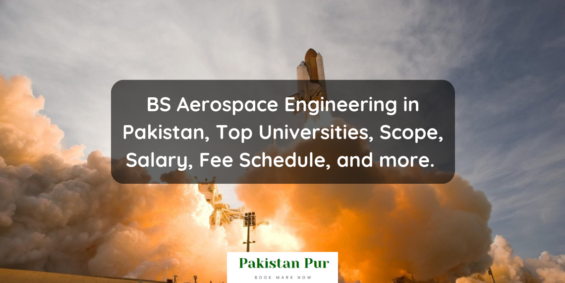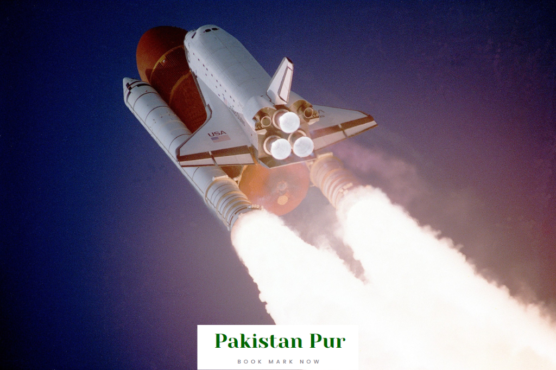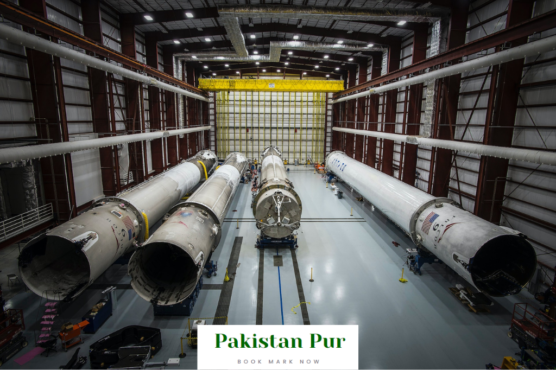
Table of Contents
Aerospace Engineering is a specialized field of engineering focused on the design, development, testing, and optimization of both aircraft and spacecraft.
Aerospace Engineering in Pakistan is a growing field, offered at the bachelor’s level by several renowned institutions such as Air University, Institute of Space Technology, and College of Aeronautical Engineering (NUST).
The curriculum focuses on providing students with a solid technical foundation in Aeronautics & Astronautics. It’s a relatively new profession in the country, but these universities are paving the way for a bright future in this domain.
The degree program equips graduates with the necessary knowledge to be successful in their careers, contributing to the global aerospace industry.
This Guide to BS Aerospace Engineering in Pakistan is a part of the series on the best degrees after FSc Pre Engineering. Read full blog here.
Best Fields after FSc Pre Engineering in Pakistan
BS Aerospace Engineering Universities in Pakistan
Aerospace Engineering is a newly introduced program in Pakistan. Since there is little demand for the program, the supply is also limited.
Currently, there are only three institutions in Pakistan offering BS Aerospace Engineering; two of whom are related to Pakistan Air Force.
| Institution | City | Program | Public/Private |
|---|---|---|---|
| Institute Of Space Technology | Islamabad | BS , 4 Years | Public |
| College Of Aeronautical Engineering | Risalpur | BE , 4 Years | Public |
| Aeroline Institute Of Aviation Studies | Lahore | BS , 4 Years | Private |

Read this guide to understand the scope of BS aerospace engineering and salary in Paksitan.
BS Aerospace Engineering Scope In Pakistan
BS Aerospace Engineering Syllabus and Subjects
Here are some of the major subjects in the BS Aerospace Engineering curriculum in Pakistan:
- English Composition
- Pakistan Studies
- Calculus
- Islamic Studies
- Vector Calculus
- Foundation of Aerospace Science
- Introduction to Computer Programming
- Differential Equations
- Physics
- Chemistry
- Thermodynamics
- Fluid Mechanics
- Aircraft Structures
- Propulsion
- Aerodynamics
- Flight Dynamics
- Avionics
- Aerospace Materials and Manufacturing Processes
- Control Systems
- Satellite Communication
These subjects provide a comprehensive understanding of aerospace engineering principles and practices.
HEC BS Aerospace Engineering Syllabus
Higher Education Commission of Pakistan has developed a curriculum for BS aerospace engineering with input from the Pakistan Engineering Council. The universities have limited choice in teaching elective subjects but largely, they follow the same syllabus.
Here are the subject lists for each semester of BS aerospace engineering. You can explore the full HEC BS Aerospace Engineering Syllabus here.
BS Aerospace Engineering: Semester 1 Subjects
- English-I
- Math-I
- General Physics
- Pakistan Studies
- Workshop Technology
- Islamic Studies
- Introduction to Aerospace Engg.
BS Aerospace Engineering: Semester 2 Subjects
- English-II
- Engineering Mechanics-I (Statics)
- Math-II
- Chemistry
- Engineering Drawing
- IDEE-I
BS Aerospace Engineering: Semester 3 Subjects
- Incompressible Aerodynamics
- Intro to Comp Programming
- Math-III
- Material Science
- Thermodynamics-I
- Probability and Statistics
BS Aerospace Engineering: Semester 4 Subjects
- Engineering Mechanics-II (Dynamics)
- Compressible Aerodynamics
- Mechanics of materials
- Aerospace Instrumentation
- Natural Sciences/Elective-II
BS Aerospace Engineering: Semester 5 Subjects
- Numerical Methods
- Aerospace Structure-I
- Control System
- Heat Transfer
- Aero Vehicle Performance
- Social Science I
BS Aerospace Engineering: Semester 6 Subjects
- Structural Dyna & Aeroelasticity
- English-III
- Stability & Control
- Aerothermodynamics (Propulsion)
- Engineering Management
BS Aerospace Engineering: Semester 7 Subjects
- Aero Vehicle Design
- Structures Elective
- Engineering Elective
- Social Sciences-II
- Computer App in Engg. Design
BS Aerospace Engineering: Semester 8 Subjects
- Senior Design Project
- Professional Practice
- IDEE-II

Top Aerospace Engineering Universities In Pakistan
Currently, these universities are offering aerospace engineering programs in Pakistan.
- Institute Of Space Technology
- College Of Aeronautical Engineering
- Aeroline Institute Of Aviation Studies
- Air University Islamabad
- Air University, Aerospace & Aviation Campus Kamra
BS Aerospace Engineering Fee Structure
BS Aerospace Engineering Fee Structure for Institute of Space Technology
- Admission Fee: Rs. 35,000
- Total First Semester Fee: Rs. 183,235
- Total Program Fee: Rs. 11,22,880
Aerospace Engineering Vs Computer Engineering
| Aerospace Engineering | Computer Engineering | |
| Overview | Focuses on the design, development, and application of aircraft and spacecraft. | Concentrates on the design and development of computer systems and networks. |
| Pros | – Offers exciting career opportunities, such as working on spacecraft. – High potential for innovation and advancement. | – High demand for professionals. – Broad range of industries to work in. |
| Cons | – Highly specialized, limiting job opportunities. – Requires a strong background in physics and mathematics. | – Constant need for upskilling due to rapid technology changes. – Can be high-stress due to project deadlines. |
Choose wisely based on your interests and strengths. Both fields offer rewarding careers with opportunities for growth and advancement.
Aerospace Engineering vs Avionics
| Aerospace Engineering | Avionics | |
| Overview | Involves the design, development, and application of aircraft and spacecraft. | Focuses specifically on the electronic systems used in aviation, satellites, and spacecraft. |
| Pros | – Provides a broad understanding of aerospace systems. – Opportunities to work on pioneering space exploration projects. | – Specialized field with high demand for experts. – Extensive application in both civil and military aviation. |
| Cons | – Highly specialized, limiting job opportunities. – Requires strong background in physics and mathematics. | – Requires deep knowledge of electronic systems. – Rapid technology changes demand continuous learning. |
Both fields intersect at many points, but your choice should reflect your specific interests and career goals
Aviation Engineering Vs Aerospace Engineering
| Aviation Engineering | Aerospace Engineering | |
| Overview | Focuses on aircraft design, systems, and operations. | Encompasses aircrafts and spacecrafts design and development. |
| Strengths | – Specialized in aircraft systems. – Broad application in civil aviation. | – Wide-ranging knowledge of aerospace systems. – Involvement in pioneering space projects. |
| Challenges | – Requires deep understanding of aerodynamics. – Constantly evolving technology demands continuous learning. | – Highly specialized, potentially limiting job opportunities. – Necessitates strong physics and math skills. |
FAQs
Can electrical engineers work in aerospace?
Absolutely! Electrical engineers play a critical role in the aerospace industry. They design and develop electrical systems for aircraft and spacecraft, such as control systems, communication systems, and power generation systems. Their expertise is crucial in creating reliable and efficient aerospace technologies.
Is there a demand for aerospace engineers in the future?
Yes, there is a demand for aerospace engineers in the future. According to the U.S. Bureau of Labor Statistics, employment of aerospace engineers is projected to grow 6 percent from 2021 to 2031, which is about as fast as the average for all occupations.
Can I do masters in aerospace engineering after mechanical engineering?
Absolutely! Your background in Mechanical Engineering provides a strong foundation for advanced study in Aerospace Engineering.
You’ve already mastered key principles like dynamics and thermodynamics, which are crucial in Aerospace. So, taking the leap into this specialized field could open new, exciting opportunities in the aviation or space exploration industries.
Consider this move as your next step towards an exhilarating career!
How much an aerospace engineer earns?
The average salary for an aerospace engineer in the United States varies based on experience and location. As of 2023, the median annual wage is around $122,270. Entry-level positions earn about $81,102, while experienced engineers can make up to $168,370.
Which country is best for aerospace engineering?
The USA, UK, Germany, France, and Japan are top contenders for the best countries in Aerospace Engineering. Each offers renowned universities, thriving industries, and competitive salaries.
However, if you’re considering cost-effective education, Germany and the Netherlands are excellent choices. Additionally, Russia is highly recommended for master’s programs in this field.
Are aerospace engineers rocket scientists?
Yes and no. Here’s why:
Similarities: Both professions work with spacecraft. They utilize physics and engineering principles in their tasks.
Differences: Rocket scientists focus specifically on rocket propulsion systems, while aerospace engineers have a broader scope, covering all aspects of aircraft and spacecraft design and maintenance.
So, if you’re an aerospace engineer, you could be a rocket scientist, but not all aerospace engineers are rocket scientists. Choose the path that best suits your interests!
Leave a Reply